Cholesterol is an organic chemical compound formed in the human body and absorbed with food. Mainly produced in the liver, cholesterol has many valuable functions. Most notably, it builds cell membranes and regulates their fluidity and permeability.
There are several types of cholesterol. The most important ones belong to LDL and HDL cholesterol![]() . Each has different functions in the body.
. Each has different functions in the body.
The HDL fraction of cholesterol, commonly called good cholesterol, has a high density. Its action is beneficial because it protects against cardiovascular disease. HDL cholesterol moves excess cholesterol from the vessel walls and projects it to the liver. There it is processed and excreted with bile. In simple terms, it cleanses the tissues of excess cholesterol.
The LDL fraction of cholesterol – bad cholesterol is the low-density fraction. It transports cholesterol from the liver to the body's tissues. When too much LDL cholesterol is deposited in the body's cells, it settles in the coronary arteries. Excessive accumulation of LDL cholesterol has various causes. Experts warn of the dangerous effects of elevated cholesterol and recommend lifestyle and dietary changes.
High levels of LDL cholesterol are not a good thing. However, cholesterol is necessary for the ordinary course of many functions in the human body. Keeping the LDL and HDL fractions at appropriate levels is critical to good health. A proper and well-balanced diet – it is one way.
Untreated hypercholesterolemia can be dangerous. This condition causes many diseases. Including mostly atherosclerosis. In turn, the consequences of untreated or poorly treated atherosclerosis are severe. It can consist of stroke, heart attack, and different. Thus, lowering the risk of these consequences and cholesterol levels is essential.
The first and most effective way to lower bad cholesterol is through diet. Healthy eating positively affects our daily functioning and life. Breaking unhealthy eating habits takes work. But, with the right motivation and self-discipline, you can bring healthy habits step by step. An excellent way to do this is to include foods that will help you lower cholesterol.
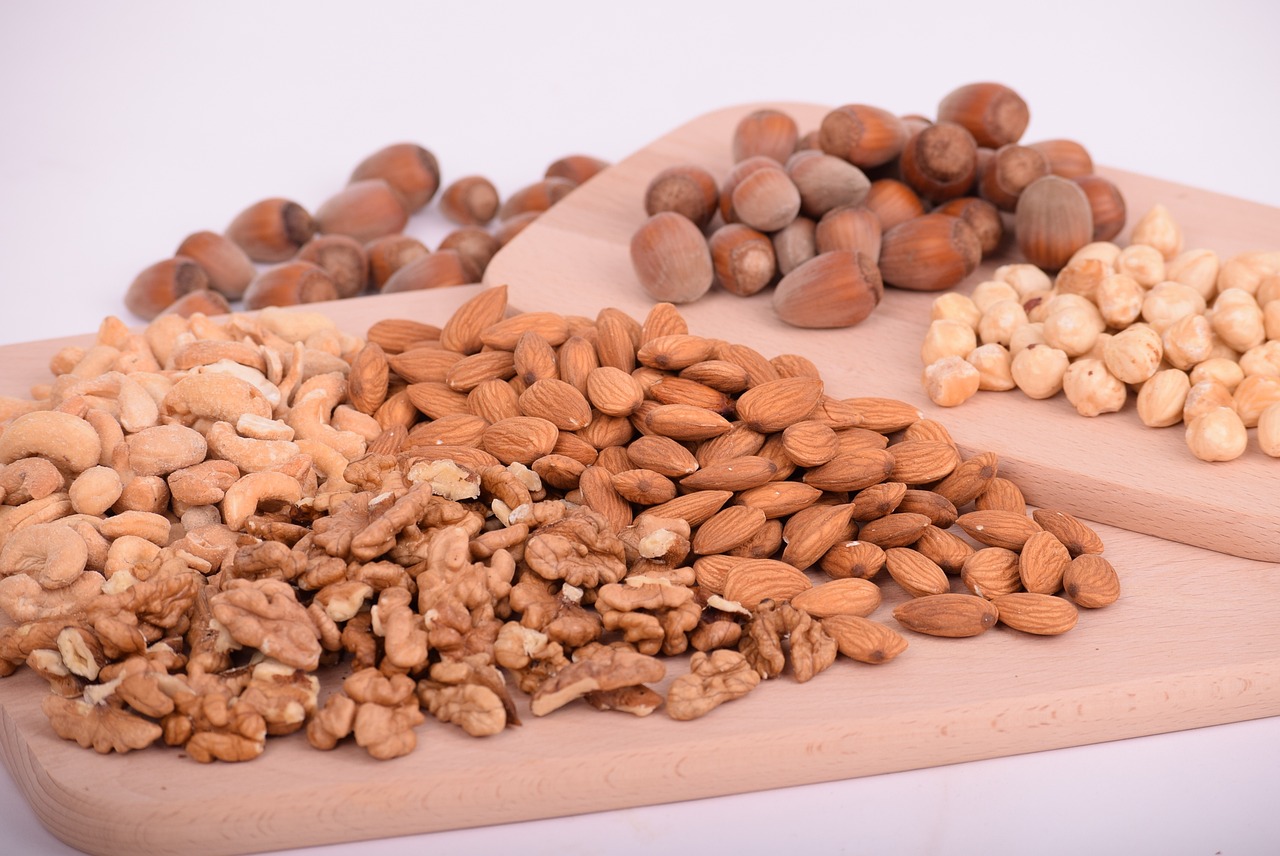
Nutritionists have long praised the health benefits of nuts. It is a recommended snack or side dish for people who want to lower cholesterol. Nuts contain essential components. Monounsaturated fatty acids![]() can be found in them. These types of components have a good effect on the lipid profile. Important is also oleic acid. It can be found in various types of nuts. Oleic acid has been shown to lower LDL cholesterol without lowering the HDL fraction.
can be found in them. These types of components have a good effect on the lipid profile. Important is also oleic acid. It can be found in various types of nuts. Oleic acid has been shown to lower LDL cholesterol without lowering the HDL fraction.
Nuts are also a valuable source of polyunsaturated fatty acids. Such as omega-6 and omega-3. Omega-6 acids significantly lower bad cholesterol. Omega-3 fatty acids also lower LDL as well as raise good HDL cholesterol. Also, the fiber in nuts is effective in reducing blood cholesterol levels.
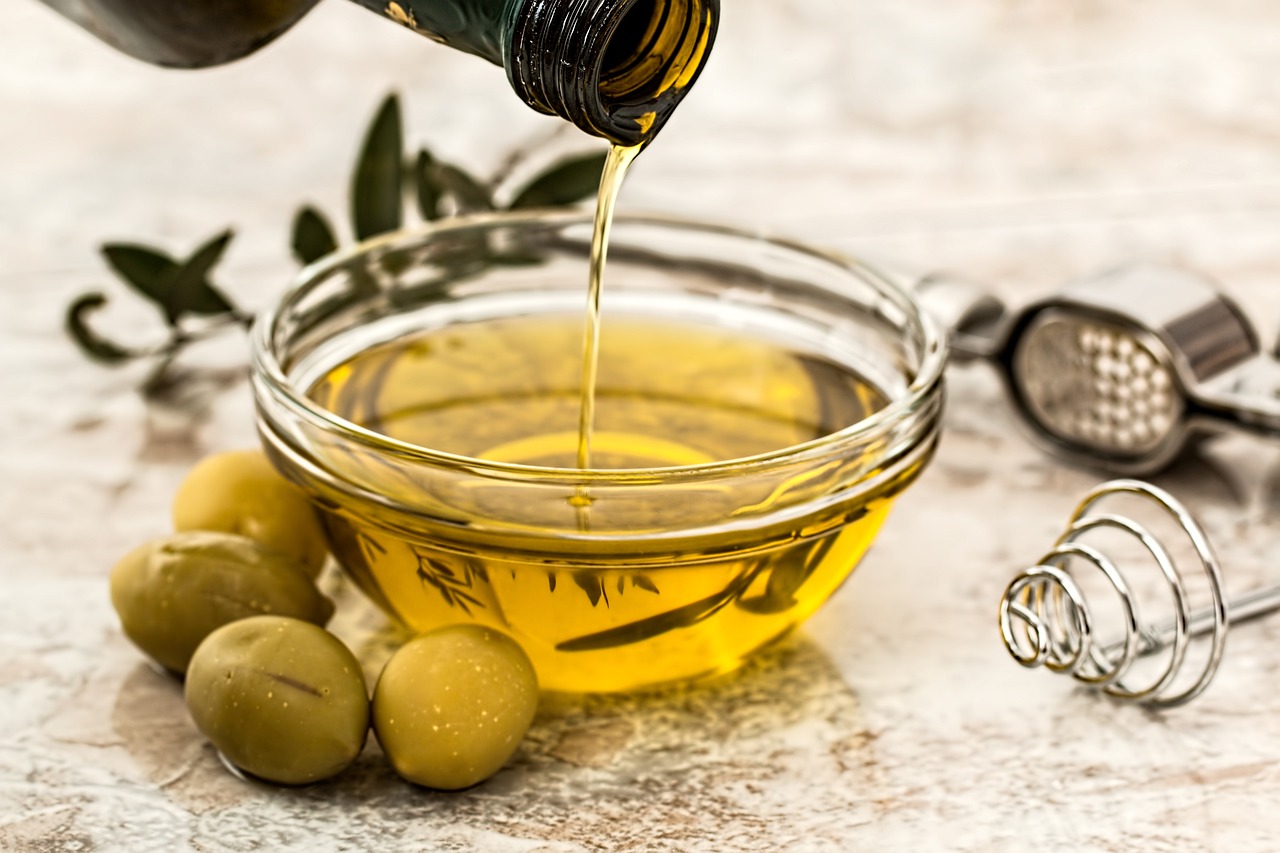
In addition to the fats in nuts, it is also worth noting different fats. It is olive oil or canola oil. In an anti-cholesterol diet, you should give up animal fats. You can replace them with vegetable fats. Limiting saturated fats and trans fatty acids can lower cholesterol levels. So avoid fatty meat and fatty dairy products.
Instead, lean meats and low-fat dairy products are allowed. The best choices, however, are olive oil. It is best eaten cold – a tablespoon daily or added to salads. And also canola oil. Beware of coconut and palm oils because although they are vegetables, they should be avoided in an anti-cholesterol diet.

Healthy fats worthy of attention can also be found in fish. In this case, fish can be fatty. Because they contain large amounts of omega-3 fatty acids – which balances good and bad cholesterol levels. Each fish also has some cholesterol. But thanks to omega-3, that help maintains healthy cholesterol levels.
Various organizations (such as the American Heart Association) recommend eating fish regularly. Eating fish has many benefits. We can find a lot of vitamins, protein, and minerals. However, it is essential to pay attention to how fish is eaten.
People with elevated cholesterol should not eat deep-fried fish or fish served with fatty sauces. A better way to prepare fish is to bake it in the oven. Alternatively, they can be fried in a small amount of vegetable fat. Such as olive oil. So add salmon or different fish to your menu.
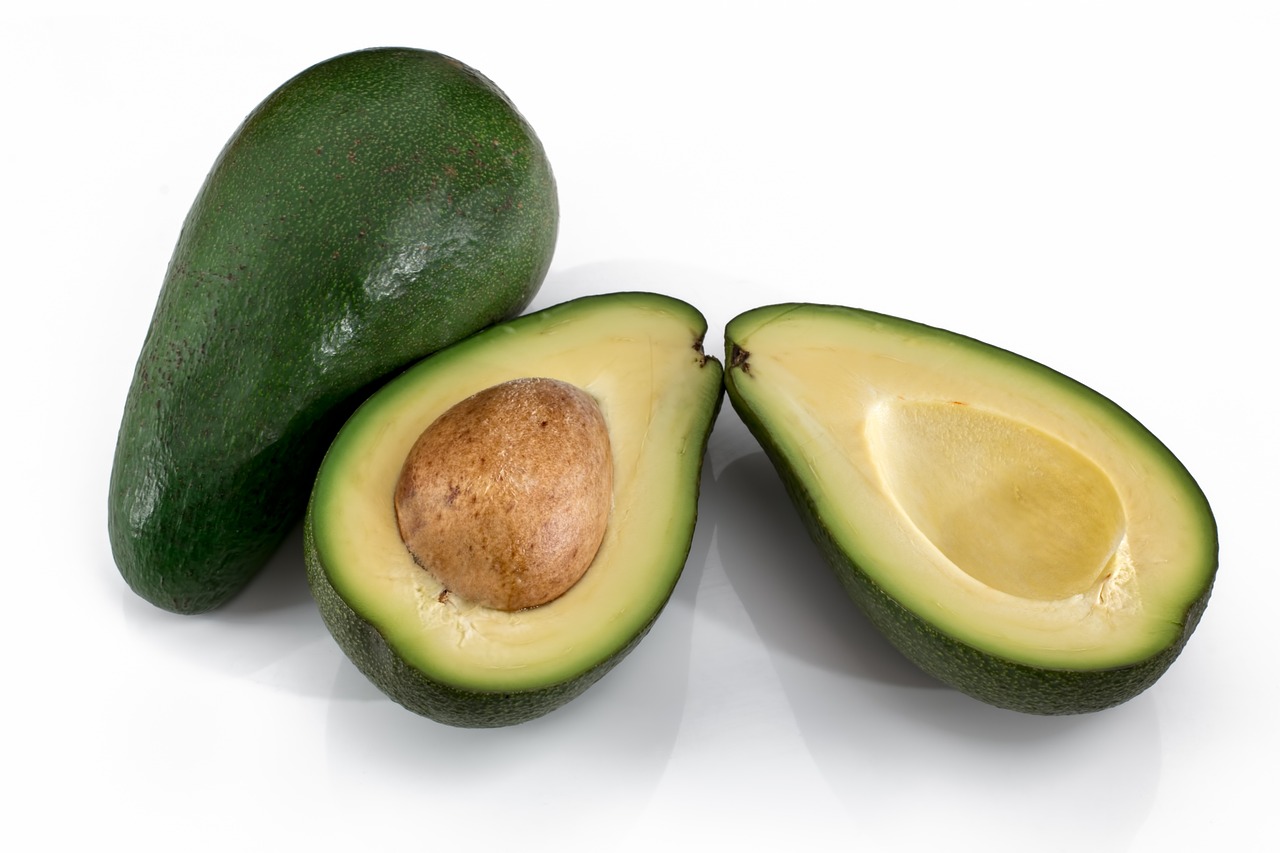
A different source of trans fats is – avocado. Regular consumption of avocados helps maintain normal cholesterol levels. It prevents atherosclerosis. And in the process, it aids weight loss. Like olive oil, avocado is an excellent source of healthy monounsaturated fats![]() . Avocado is also rich in vitamins and give you energy. It contains essential micronutrients. Such as potassium and fiber
. Avocado is also rich in vitamins and give you energy. It contains essential micronutrients. Such as potassium and fiber![]() . In addition, it doesn't have a lot of sugar like some fruits.
. In addition, it doesn't have a lot of sugar like some fruits.
Some experts recommend eating one avocado a day to reduce bad cholesterol. Avocados are recommended for obese people. And also for those who struggle with atherosclerosis and type II diabetes. A significant advantage of avocados is their versatility in composing dishes. You can use avocados in various ways to add variety to your anti-cholesterol diet. You can add them to salads or make spreads. This fruit can also be eaten sweet.
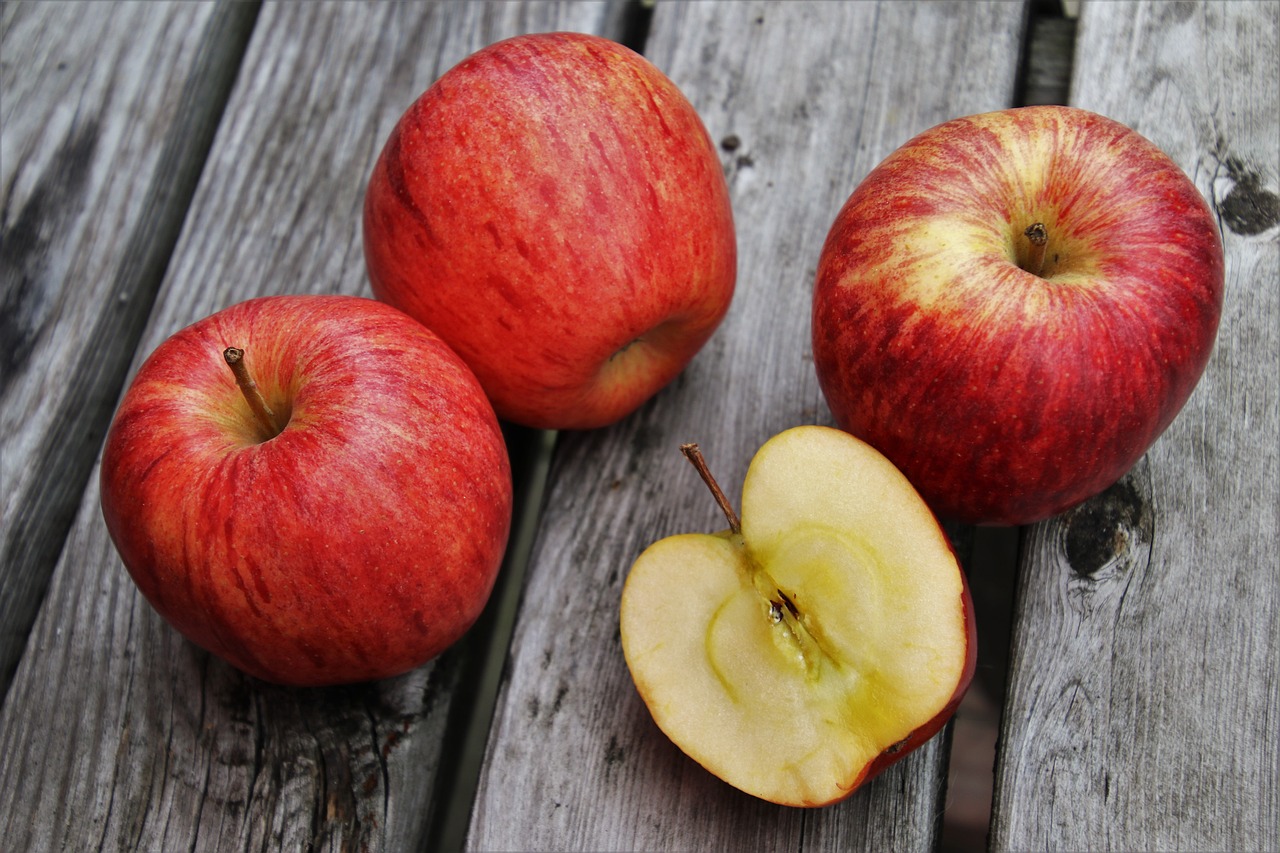
Fruits and vegetables are the foundation of each healthy diet. They are rich in vitamins and different substances. If you want to lower your cholesterol, start eating fruits, especially apples. The reason for this is that these fruits are high in pectin![]() .
.
Pectin is a substance found in the walls of plants. It has significant health-promoting properties. It has a positive effect on the digestive system. Among other things, they increase the feeling of satiety, are suitable for intestinal bacterial flora, and mostly, thanks to the binding and removal of bile acids from the body – they reduce the level of cholesterol in the blood. That's why apples, which have large amounts of pectin, are worth considering.
In addition to apples, pectin is contained in different fruits. Such as currants, peaches, or citrus. Pectin is also used for thickening in gastronomy because it works similarly to gelatin. It can be bought in powder form. It is used to make jams, concentrates, jellies, yogurts, and more.
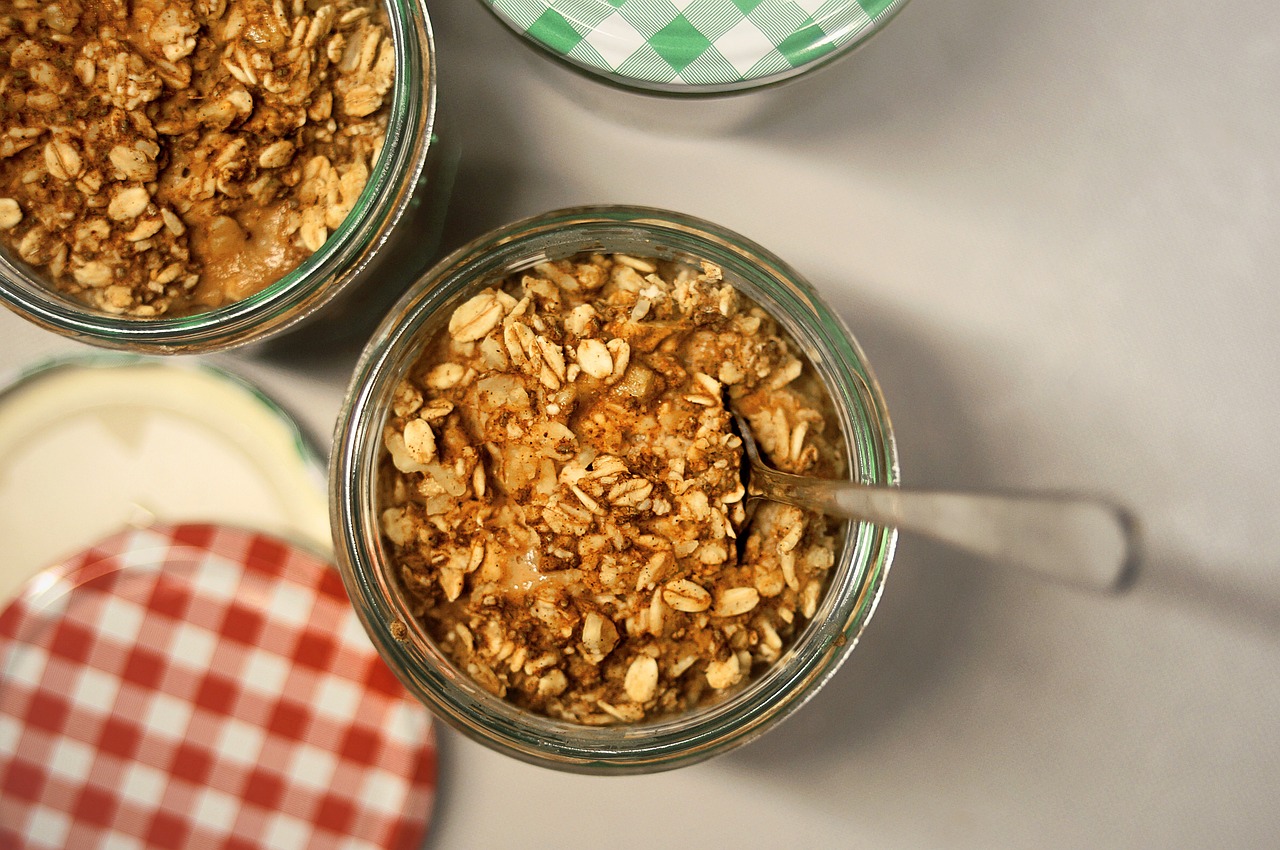
An anti-cholesterol diet should be rich in fiber![]() . Soluble fiber components have properties that inhibit cholesterol synthesis – they block bile reabsorption in the intestines by binding bile acids responsible for the initial fat digestion process. So choose foods that have high amounts of fiber. For example, oatmeal.
. Soluble fiber components have properties that inhibit cholesterol synthesis – they block bile reabsorption in the intestines by binding bile acids responsible for the initial fat digestion process. So choose foods that have high amounts of fiber. For example, oatmeal.
Oats are a good source of soluble fiber. Besides, it helps regulate blood pressure. It is a good breakfast that can be eaten in various ways. Combine oatmeal with your favorite ingredients, and eat it with nuts and apples. It will help you significantly lower your blood cholesterol levels. Also, flaxseed contains a lot of fiber. You can also add them to oatmeal to increase your fiber intake.
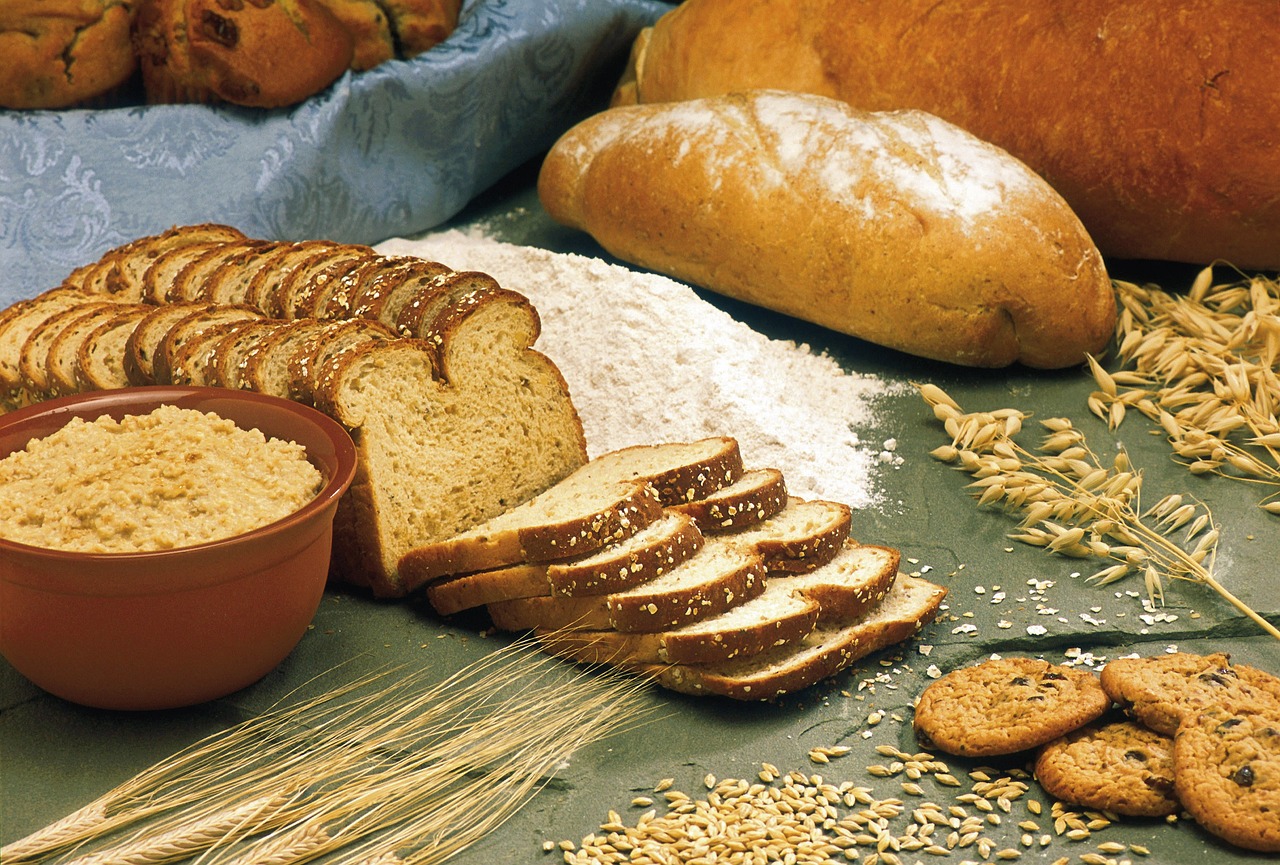
Increasing the amount of fiber in the diet can also be done by switching from wheat to multi-grain products![]() . Regular consumption of grain products can lower your cholesterol. Therefore, choose whole-grain bread, wholemeal pasta, and groats. Cereal products also benefit intestinal peristalsis. Fiber also prevents fluctuations in our blood sugar.
. Regular consumption of grain products can lower your cholesterol. Therefore, choose whole-grain bread, wholemeal pasta, and groats. Cereal products also benefit intestinal peristalsis. Fiber also prevents fluctuations in our blood sugar.
However, you should be careful because excess fiber intake can cause unpleasant side effects. Too much of it in our diet can cause bothersome abdominal pain, diarrhea, and what it even causes dehydration. So in an anti-cholesterol diet, you must consume a lot of fiber. But not to overdo it; watch how your body reacts to it.

It may surprise some of you since sweets are unlikely to be recommended for healthy eating. However, dark chocolate is an exception to this. However, it must contain high amounts of cocoa. Chocolate with a high cocoa content effectively reduces the risk of developing coronary and heart diseases.
Small amounts of dark chocolate are indicated for consumption in an anti-cholesterol diet. Then provides the body with a sizable dose of flavonoids![]() , which can reduce the LDL fraction in the blood. Flavonoids are known for their antioxidant effects. They also help detoxify the body and seal blood vessels.
, which can reduce the LDL fraction in the blood. Flavonoids are known for their antioxidant effects. They also help detoxify the body and seal blood vessels.
The properties of flavonoid compounds will also work well for diseases of the urinary tract. Such as cystitis and renal pelvis, as they have a diuretic and cleansing effect. It is flavonoids that enhance the proper functioning of the circulatory system and allow the human body to absorb vitamin C faster. We can find flavonoids in vegetables and fruits, as well as in various types of teas.
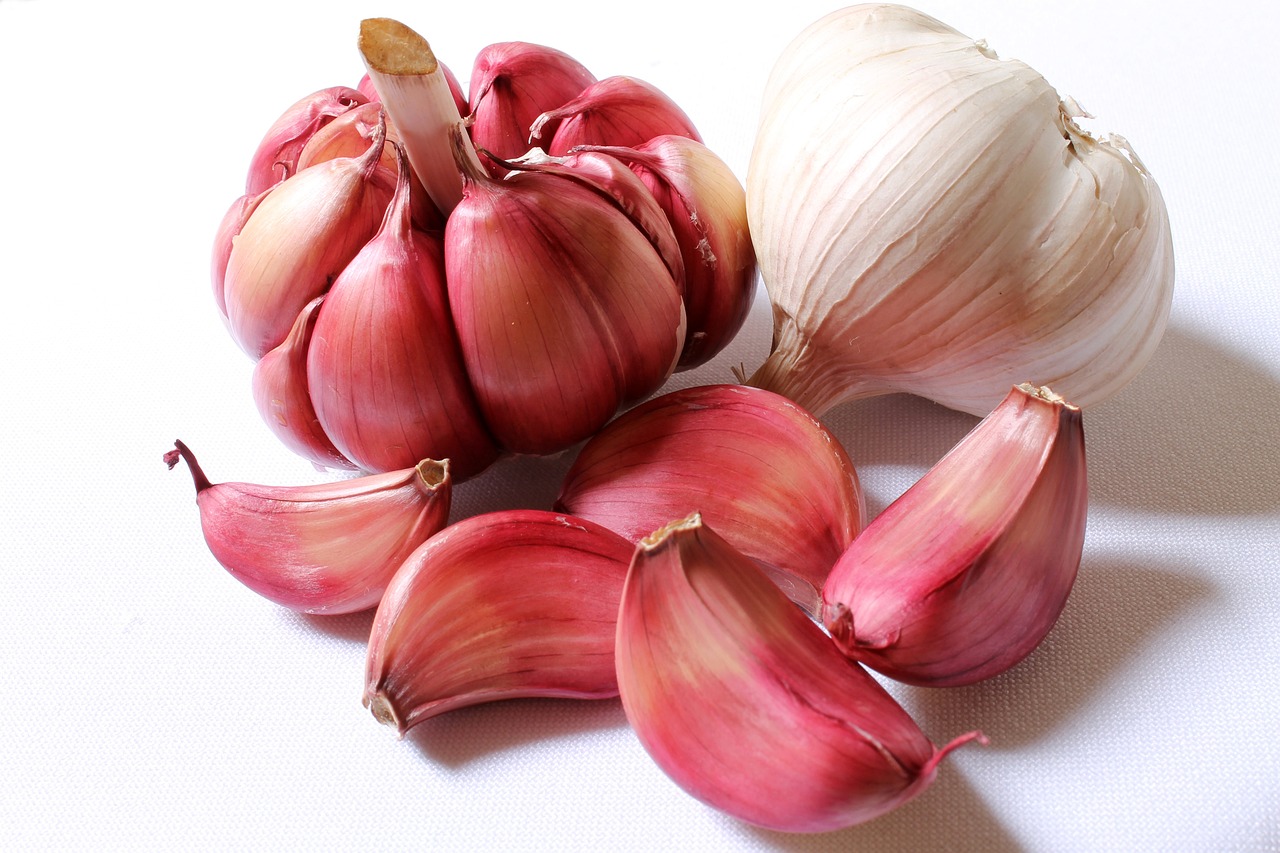
Garlic is a plant that is known for its medicinal value. It is a natural antibiotic, inhibits the growth of bacteria, and fights infections. Consuming garlic for colds and other conditions of immune decline is especially recommended. Meanwhile, it is interesting that garlic also positively affects cholesterol levels.
Garlic inhibits cholesterol absorption from the digestive tract and reduces its internal production in the body. In addition, the consumption of garlic helps to inhibit the activity of a liver enzyme that regulates the amount of cholesterol produced.
However, garlic is recommended in mild to moderate cases of hypercholesterolemia. Garlic achieves the most significant effect in patients with mild cholesterol elevation. In contrast, in cases of severe lipid disorders, garlic has no such power. Then it slightly affects blood cholesterol levels.
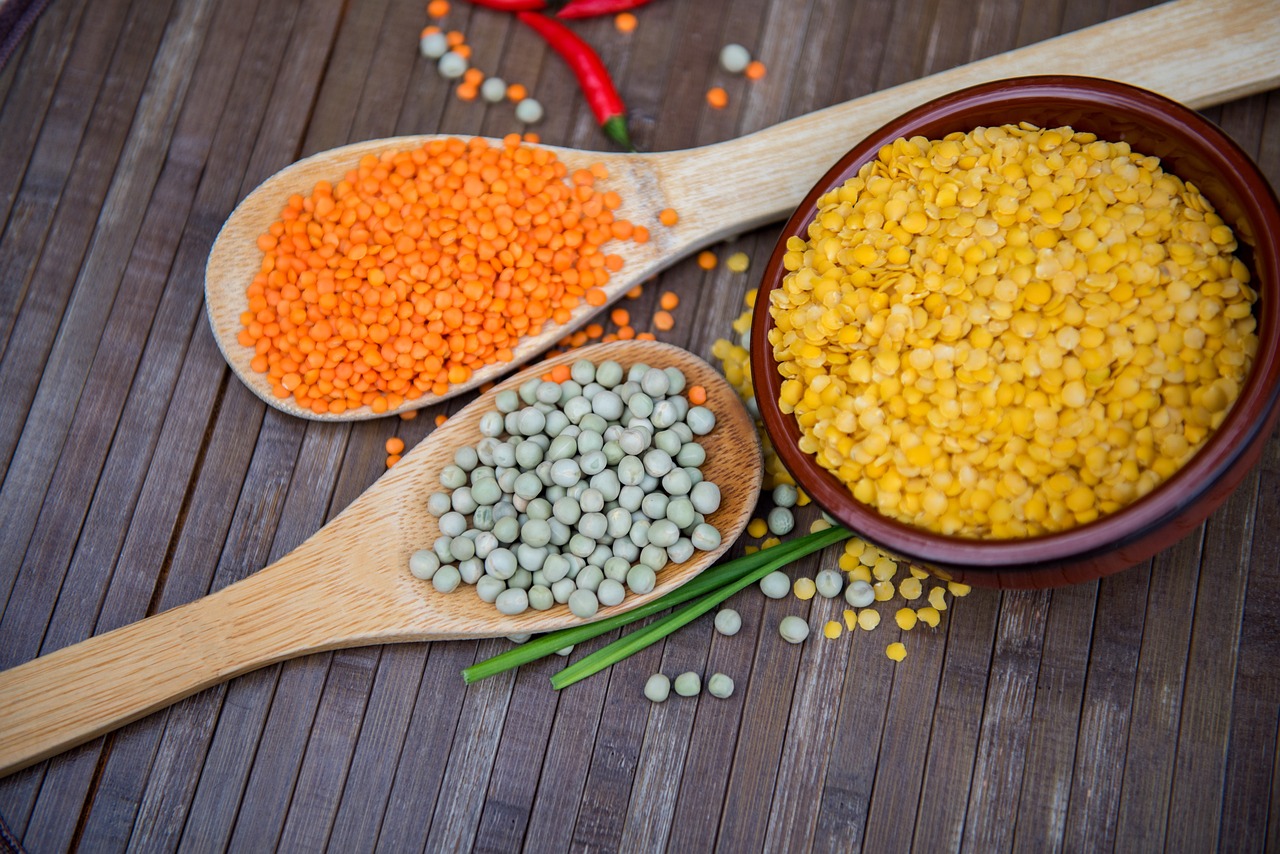
Legumes also have a positive effect on cholesterol levels. Also, fiber![]() , as indicated in an anti-cholesterol diet, plays a significant role. Legumes are a rich source of fiber. They contain insoluble fiber. It is it that helps lower LDL cholesterol. It also regulates intestinal function and is essential for fighting constipation.
, as indicated in an anti-cholesterol diet, plays a significant role. Legumes are a rich source of fiber. They contain insoluble fiber. It is it that helps lower LDL cholesterol. It also regulates intestinal function and is essential for fighting constipation.
In addition, legumes contain polyunsaturated fatty acids and minerals. They are found in calcium, iron, magnesium, and others. Legumes also have a beneficial effect on the nervous system. Legumes are worth combining with cereals, nuts, and green vegetables to create a nutritious meal. Many types of legumes allow you to diversify your anti-cholesterol diet. For example, you can eat lentils, beans, or peas.
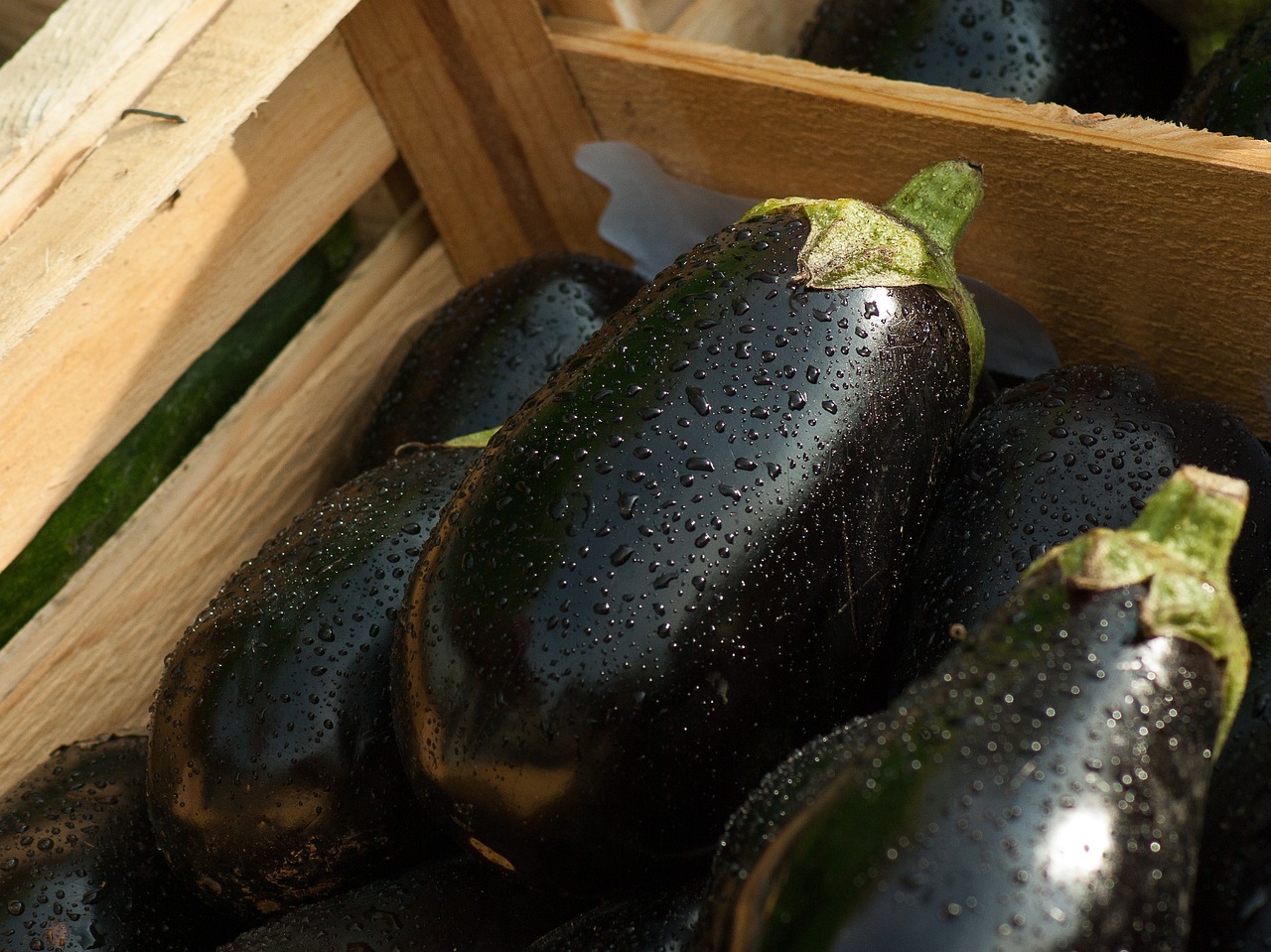
Eggplants have several health benefits, so adding them to your menu is worth adding. They contain very few calories. So they are often recommended for people who want to lose weight. Eggplants also have many nutrients and vitamins. They have vitamins – like C, K, and B- among others. And also magnesium, potassium, or copper.
Eggplant will also add another serving of fiber![]() , which is valuable in an anti-cholesterol diet. It contains antioxidants, natural substances that protect our body from cancer. Therefore, you can start eating eggplants for many reasons, which will positively affect your health. Most importantly, it is that eggplants can lower LDL cholesterol.
, which is valuable in an anti-cholesterol diet. It contains antioxidants, natural substances that protect our body from cancer. Therefore, you can start eating eggplants for many reasons, which will positively affect your health. Most importantly, it is that eggplants can lower LDL cholesterol.
But remember that eggplants should not be eaten raw. The solanine contained in them is a highly toxic compound. Eating a raw eggplant can therefore cause harm. To prevent it, the eggplant should be heat treated; then, the toxin is no longer harmful.
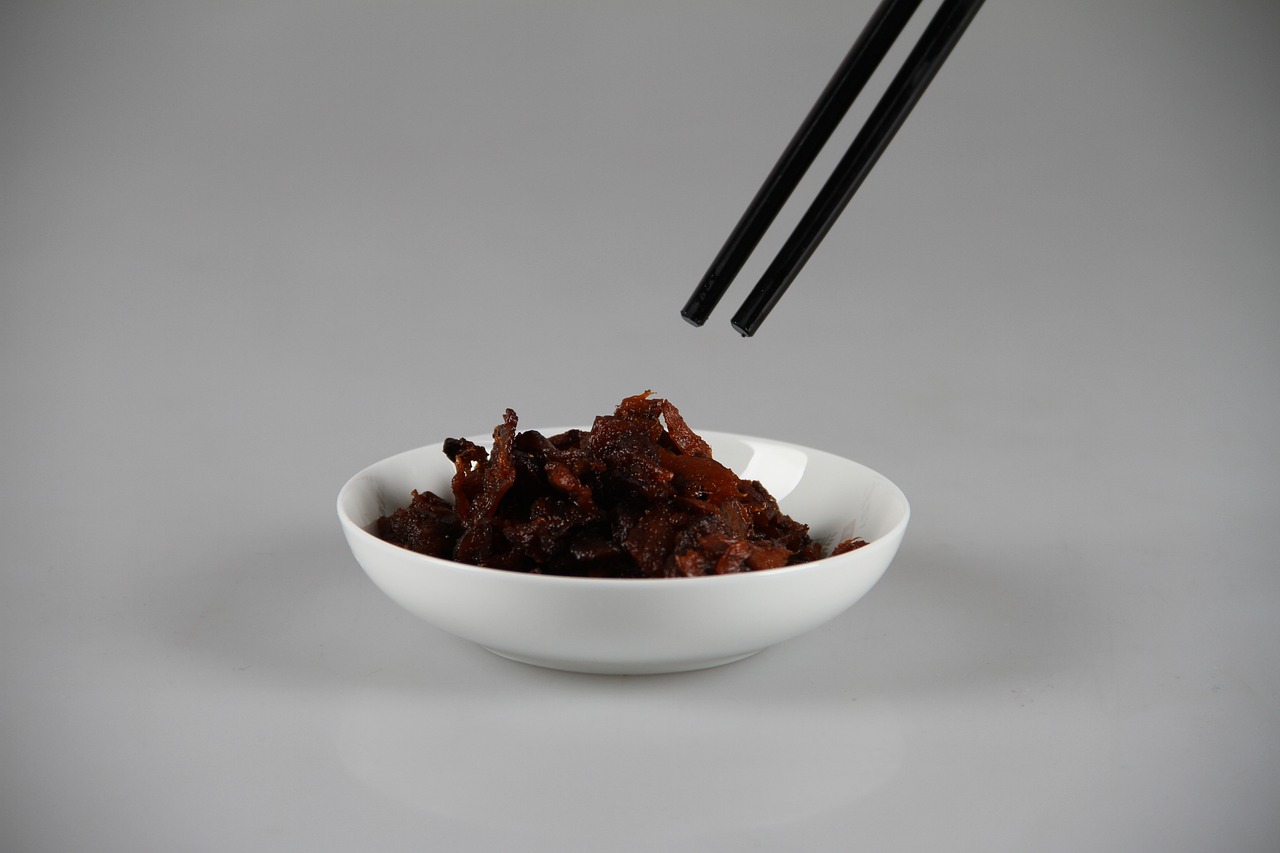
This type of mushroom is mainly found in Southeast Asia. It is a medicinal mushroom with favorable health properties. It is very nutritionally rich in traditional Chinese medicine. Shiitake mushrooms exhibit antibacterial and antiviral properties. That's why specialists recommend them for colds to strengthen the immune system. They also contain a hefty dose of vitamin B3, which is especially necessary for the body.
These mushrooms contain vast amounts of many minerals, including potassium and selenium. They also have a lot of protein. Regarding cholesterol, eating shiitake mushrooms helps lower LDL levels and prevents the hardening of the arteries. Shiitake mushrooms are now available in stores around the world. They can be added to Asian dishes and even eaten raw.
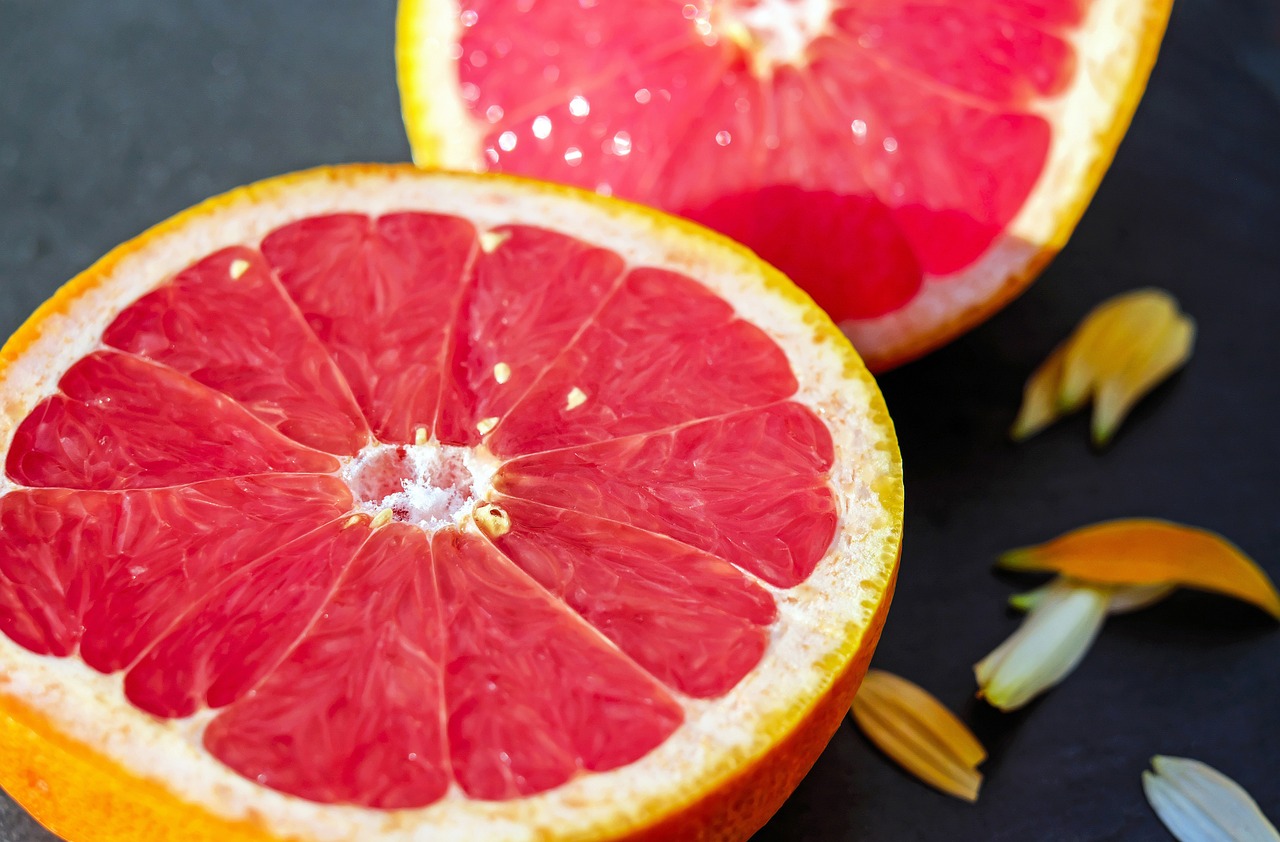
Not everyone likes grapefruit because of the slight bitterness in the taste. However, if you have elevated cholesterol, it is worth bringing them into your diet. Grapefruits have many health properties. They are low in calories. They provide a large amount of dietary fiber![]() and many valuable vitamins and minerals. Grapefruit has a lot of vitamin C. This type of vitamin supports the immune system. And it is beneficial for cardiovascular health.
and many valuable vitamins and minerals. Grapefruit has a lot of vitamin C. This type of vitamin supports the immune system. And it is beneficial for cardiovascular health.
Grapefruits also contain lycopene which has anti-cancer effects. Most primarily, however, they lower blood cholesterol levels. To be precise, red grapefruits are particularly recommended in this regard. In contrast to white grapefruits, they have much more such components as lipids, lycopene, and antioxidants.
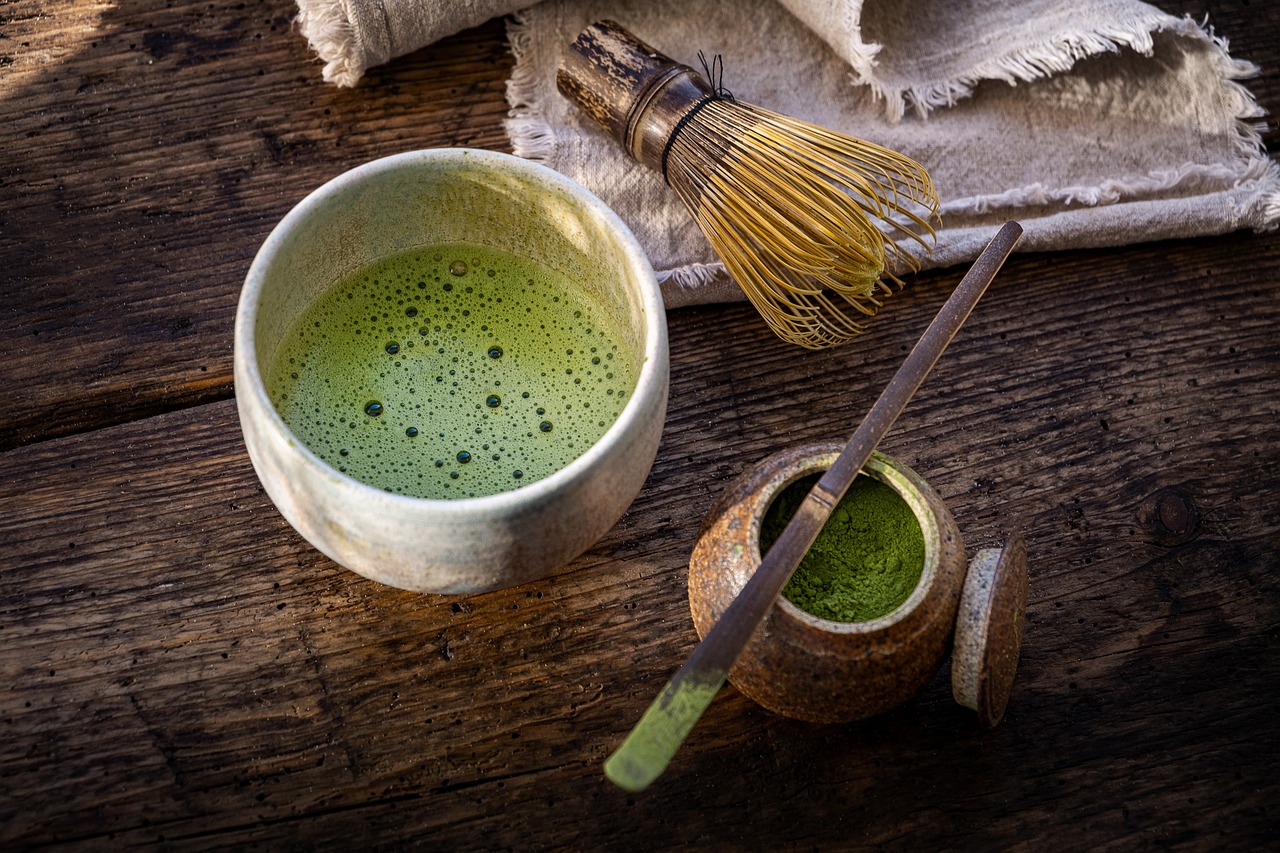
Green tea has remarkable health properties thanks to its high polyphenol content![]() . Its strong anti-atherosclerotic effect has been noted. In the composition of green tea, there is catechin, a substance that reduces cholesterol and positively impacts blood pressure.
. Its strong anti-atherosclerotic effect has been noted. In the composition of green tea, there is catechin, a substance that reduces cholesterol and positively impacts blood pressure.
In addition to it, green tea has many different benefits. It has antioxidant and anti-inflammatory properties. It improves the appearance of the skin. It supports anti-cancer prevention. It enhances memory and can protect against the onset of senile dementia. It helps with weight loss and has a beneficial effect on liver metabolism.
There are various types of green tea. Matcha is considered the healthiest type. Matcha is made from the leaves of the Chinese tea plant Camellia Sinensis. This powdered Japanese tea is prevalent not only in Japan but already worldwide.
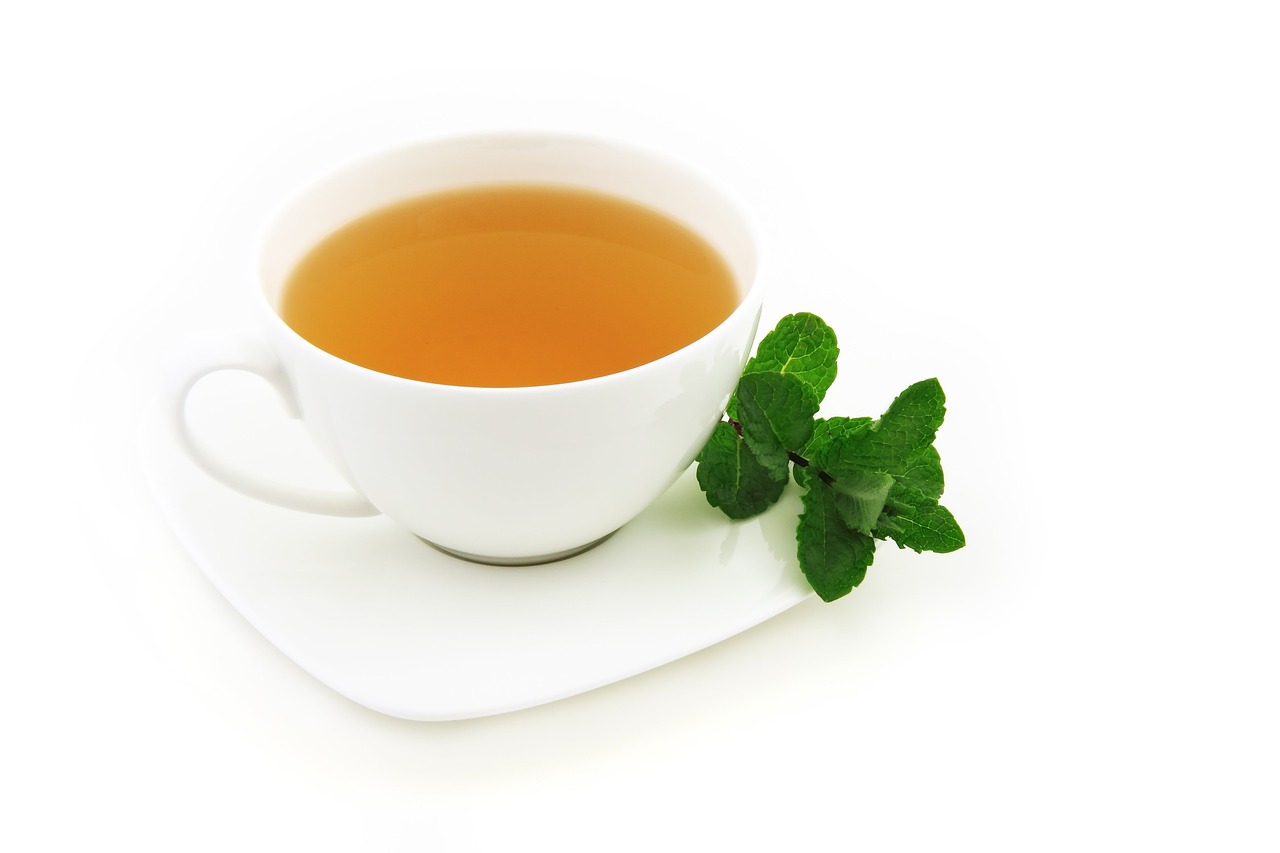
White tea contains even more nutritional compounds than green tea. White tea is the least processed tea, with a mild flavor and aroma. It is made from the young leaves or the buds. White tea, like green tea, contains many good ingredients.
Polyphenols and catechins![]() (antioxidants) – it is rich in them. And as we know, catechins help maintain proper cholesterol levels. Besides, it prevents tooth decay and stimulates brain function. White tea also strengthens bones and joints. It is recommended for osteoporosis and arthritis patients.
(antioxidants) – it is rich in them. And as we know, catechins help maintain proper cholesterol levels. Besides, it prevents tooth decay and stimulates brain function. White tea also strengthens bones and joints. It is recommended for osteoporosis and arthritis patients.
Regularly drinking white tea helps remove toxins from the body, improves the complexion's appearance, and when used externally, it has antibacterial and antifungal effects. Various types of white tea can be found on the market. There are also flavored versions with the addition of fruits and other plants.
Lowering cholesterol is a process that requires regular action. Diet is always advisable with it. In addition to the recommended foods, you should exclude those that increase bad cholesterol. Such products are, for example, sweets and fast food. A generally unhealthy lifestyle is the most common contributor to abnormal cholesterol levels. Therefore, if you want to lower cholesterol, change your habits.
Regular physical activity is the foundation of a healthy lifestyle. It also works well where we want to lower cholesterol. This is because physical activity improves blood flow – an anti-atherosclerotic effect. Exercise and sports are also recommended for obese people who want to lose weight. Shedding excess weight helps lower bad cholesterol.
A combination of proper diet and physical activity gives the best results. You can pick what form of physical activity suits your needs. It does not have to be exhausting exercises at the gym. Even regular walking, jogging, or cycling will suffice.
Alcohol and cigarettes have harmful effects on health. It is obvious, but you should pay attention when your health deteriorates. Such unhealthy habits can prolong and hinder the process of lowering cholesterol. If you have hypercholesterolemia, it is worth significantly reducing or giving up alcohol and cigarettes. It may be difficult, but it will substantially affect the effects of lowering cholesterol.
If you suspect high cholesterol, contact your doctor for more information. Cholesterol testing is easy and quick. And specialized medical advice will help you determine therapy. Then you can find out if you need additional pharmacological help.
On the other hand, supplements should be used by patients whose results are outside the norm but are low enough that it is necessary to include pharmacotherapy. Medications can assist in the process of lowering cholesterol levels. But diet and lifestyle changes are always required.
Cholesterol is a natural substance for the human body, but excess can cause health problems. With elevated cholesterol levels, a change in diet is highly advisable. Knowing what products will help us lower LDL levels and increase HDL levels is helpful. Vegetables and fruits are a staple in each diet. They contain many nutrients and vitamins. With increased cholesterol, it is worth bringing pectin products into the diet. Large amounts of fiber and healthy fats (found in fish and nuts) are also adequate. In addition to diet, cholesterol can be combated with physical activity and other healthy habits implemented in life.
Table of Contents
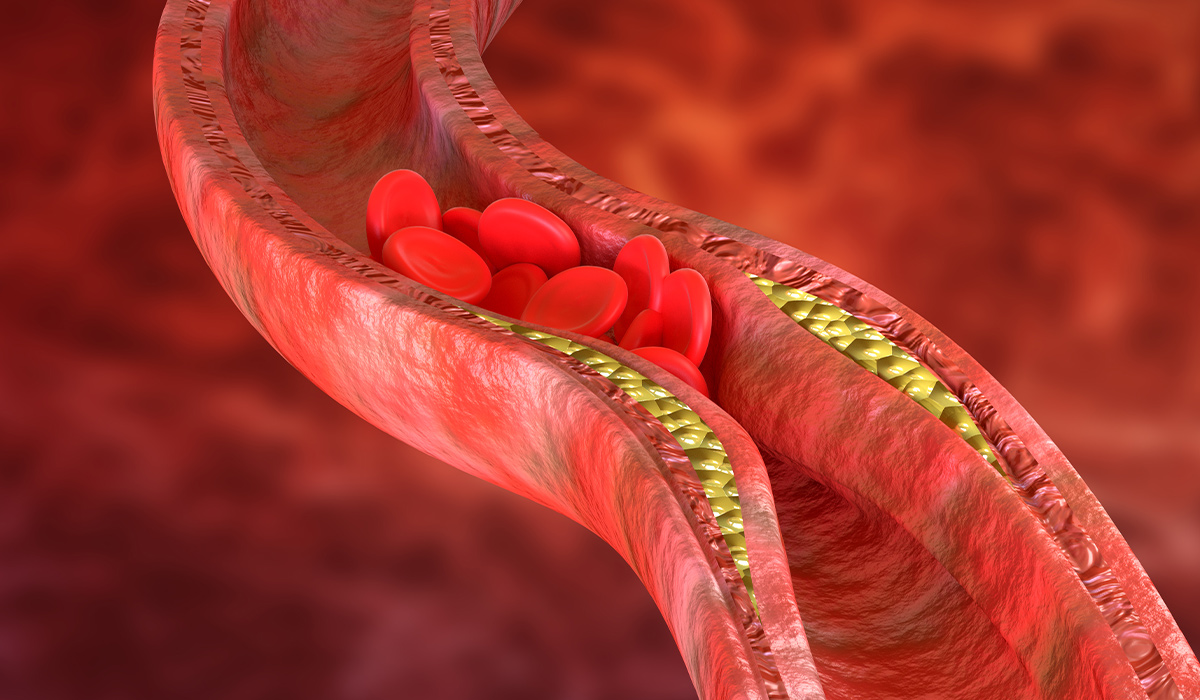
Cholesterol is essential for the human body. But its excess cause various health problems. Find out how to effectively lower… read more »
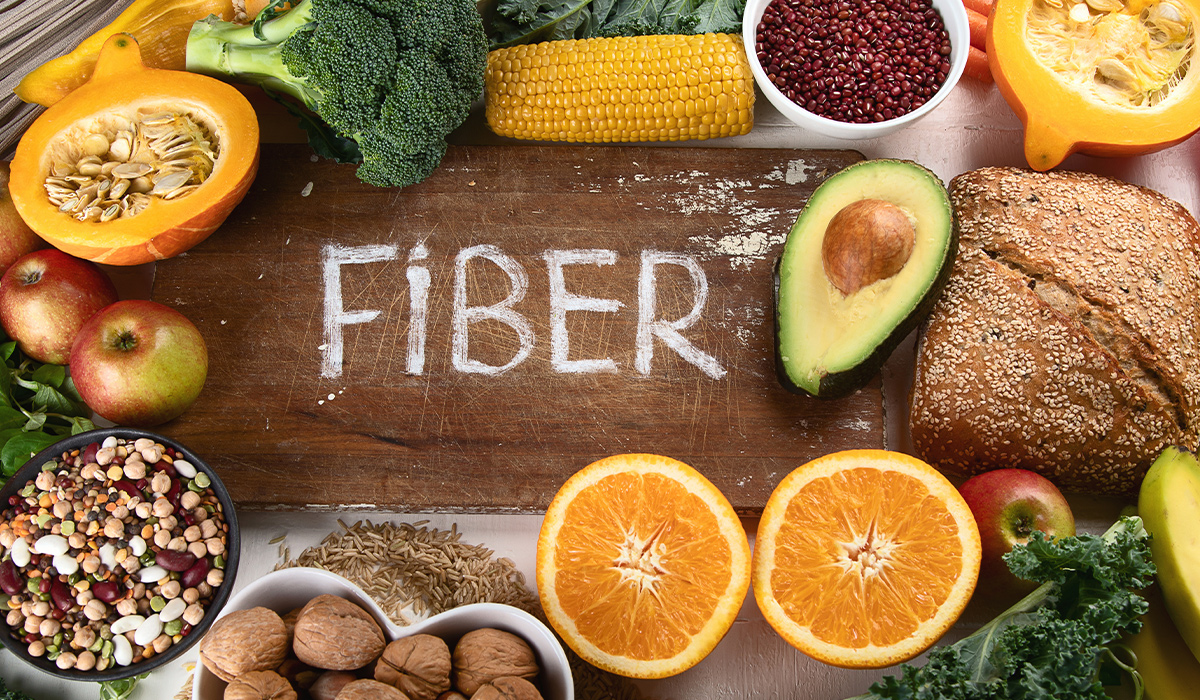
Do you know how eating high fiber foods will affect your health? Learn all about fiber and how it affects… read more »
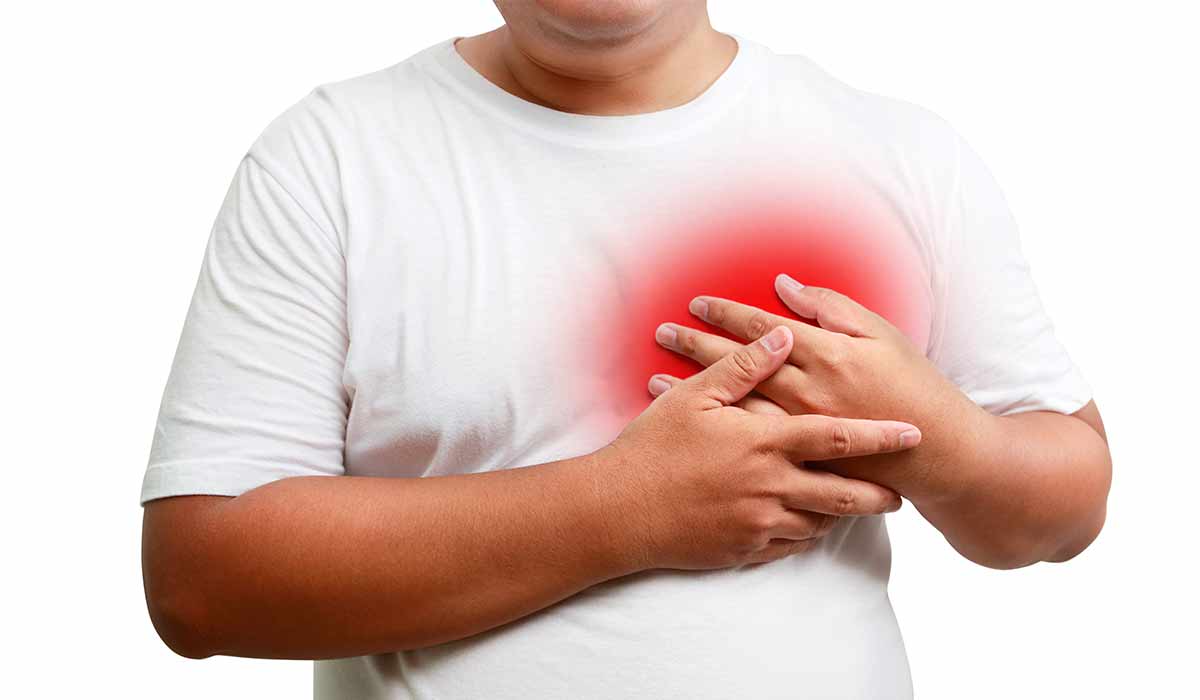
Hyperlipidemia is a disorder with high levels of lipids (cholesterol or triglycerides) in the blood. It can lead to serious… read more »

Lipids are a diverse group of organic compounds that are primarily composed of carbon, hydrogen, and oxygen atoms. What are… read more »
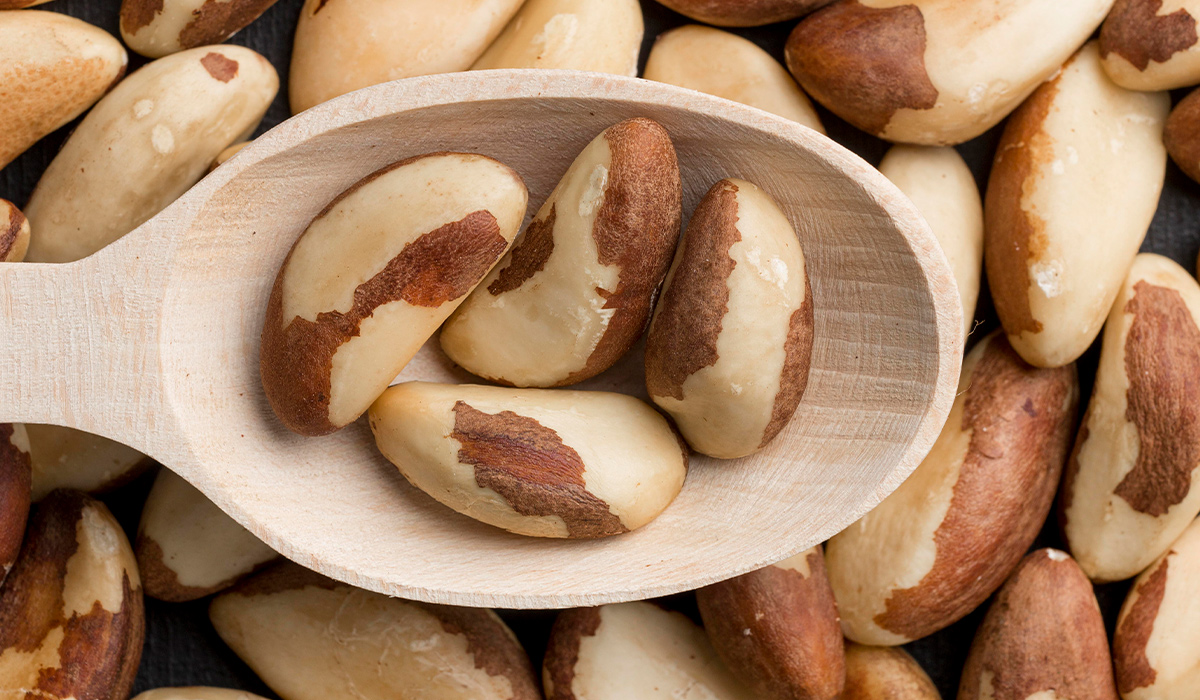
Brazil nuts are edible seeds packed with many beneficial nutrients. Many claim that they are a tasty snack and a… read more »
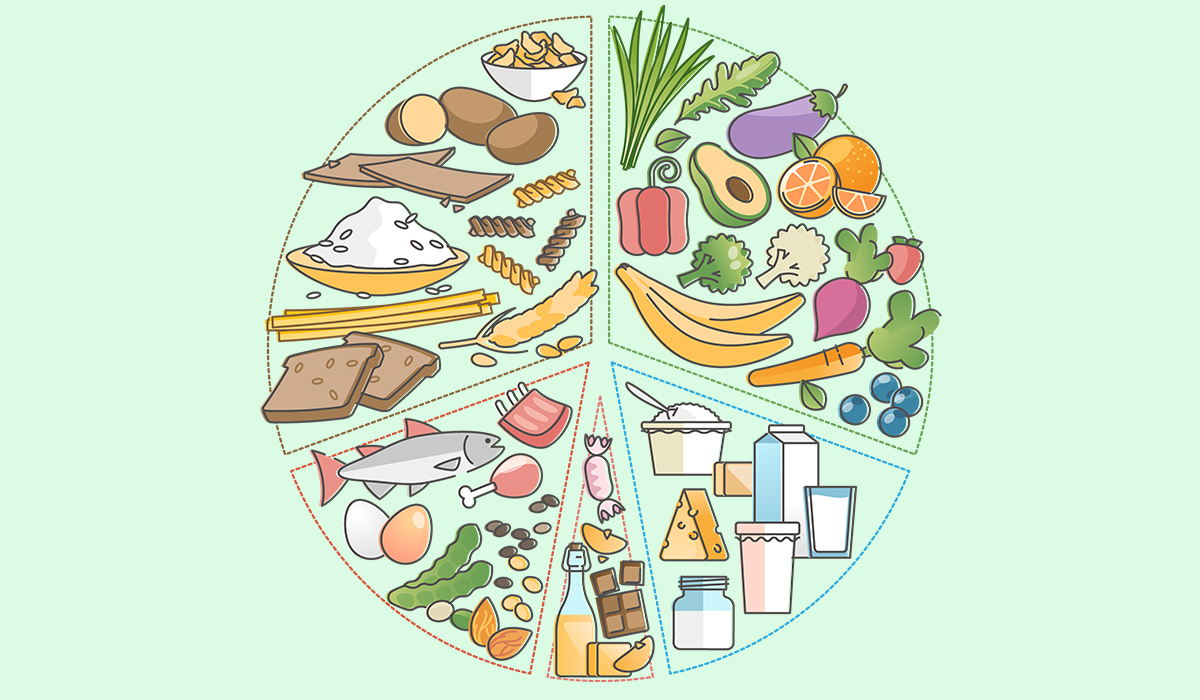
The DASH diet is a diet ideal for improving hypertension. In addition, it also has many other benefits. Learn about… read more »
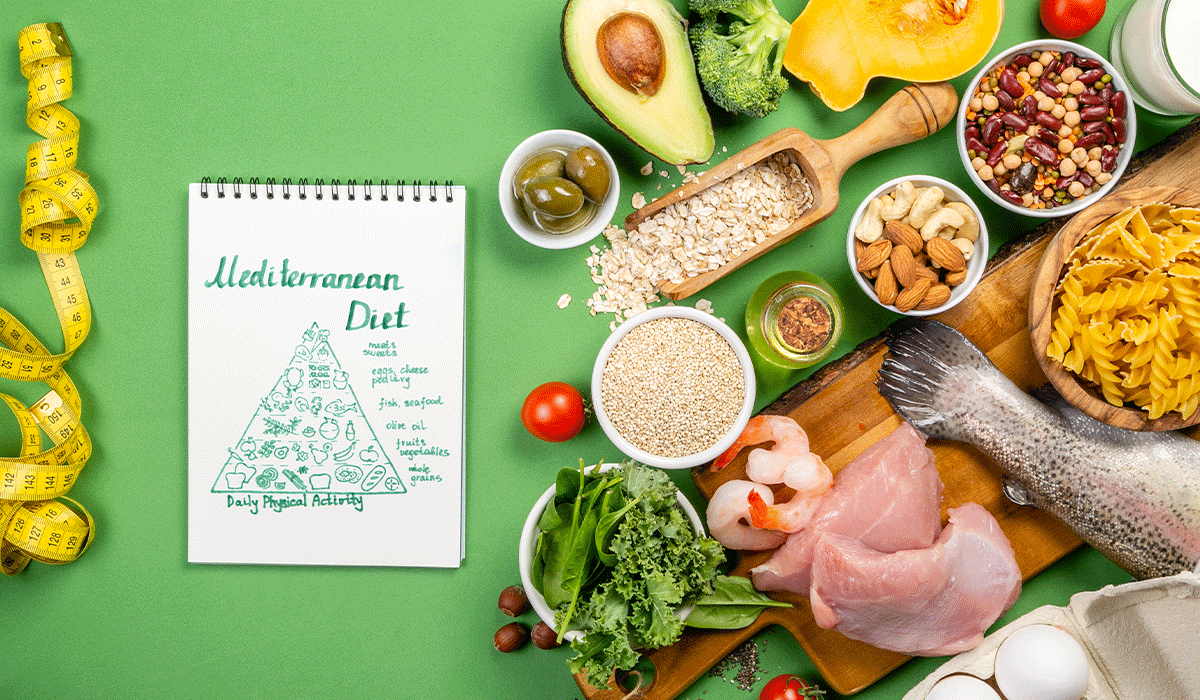
The Mediterranean diet is a popular way of eating that has many health benefits. See how to improve your eating… read more »

Omega-3 acids are very important for the proper functioning of the body. Where to get them? What is the daily… read more »
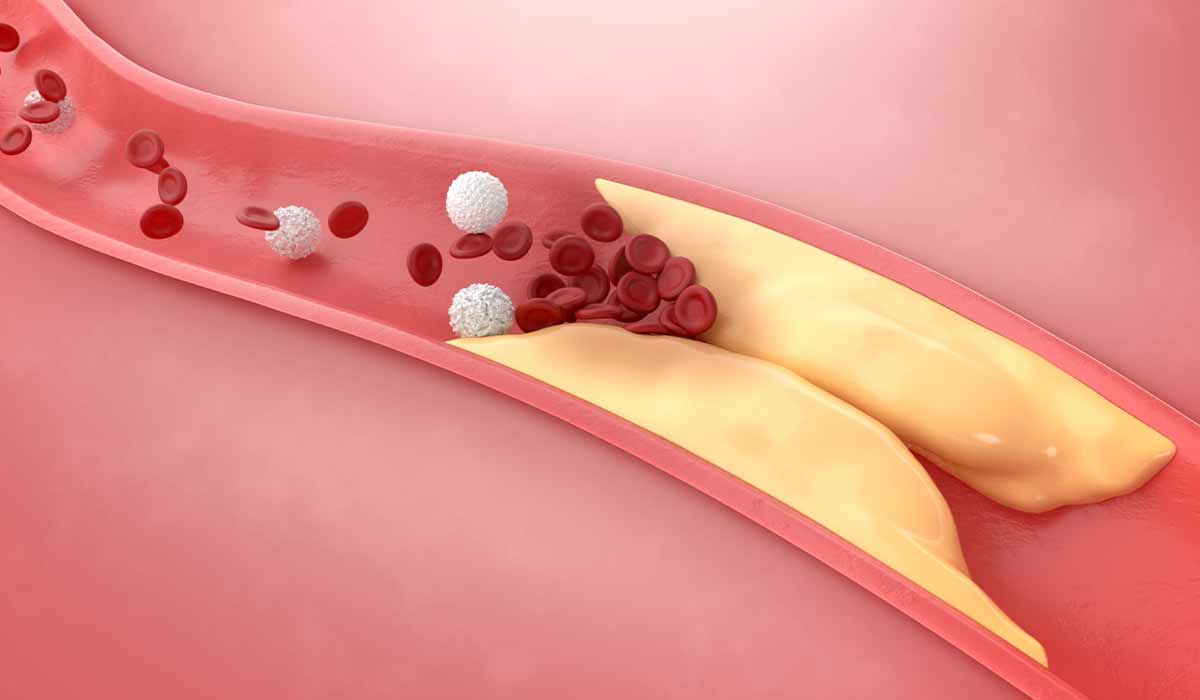
Atherosclerosis is a disease of the cardiovascular system that involves the deposition of atherosclerotic plaques in the inner layers of… read more »
Cholesterol is an organic chemical compound formed in the human body and absorbed with food. Mainly produced in the liver, cholesterol has many valuable functions. Most notably, it builds cell membranes and regulates their fluidity and permeability.
There are several types of cholesterol. The most important ones belong to LDL and HDL cholesterol![]() . Each has different functions in the body.
. Each has different functions in the body.
The HDL fraction of cholesterol, commonly called good cholesterol, has a high density. Its action is beneficial because it protects against cardiovascular disease. HDL cholesterol moves excess cholesterol from the vessel walls and projects it to the liver. There it is processed and excreted with bile. In simple terms, it cleanses the tissues of excess cholesterol.
The LDL fraction of cholesterol – bad cholesterol is the low-density fraction. It transports cholesterol from the liver to the body's tissues. When too much LDL cholesterol is deposited in the body's cells, it settles in the coronary arteries. Excessive accumulation of LDL cholesterol has various causes. Experts warn of the dangerous effects of elevated cholesterol and recommend lifestyle and dietary changes.
High levels of LDL cholesterol are not a good thing. However, cholesterol is necessary for the ordinary course of many functions in the human body. Keeping the LDL and HDL fractions at appropriate levels is critical to good health. A proper and well-balanced diet – it is one way.
Untreated hypercholesterolemia can be dangerous. This condition causes many diseases. Including mostly atherosclerosis. In turn, the consequences of untreated or poorly treated atherosclerosis are severe. It can consist of stroke, heart attack, and different. Thus, lowering the risk of these consequences and cholesterol levels is essential.
The first and most effective way to lower bad cholesterol is through diet. Healthy eating positively affects our daily functioning and life. Breaking unhealthy eating habits takes work. But, with the right motivation and self-discipline, you can bring healthy habits step by step. An excellent way to do this is to include foods that will help you lower cholesterol.

Nutritionists have long praised the health benefits of nuts. It is a recommended snack or side dish for people who want to lower cholesterol. Nuts contain essential components. Monounsaturated fatty acids![]() can be found in them. These types of components have a good effect on the lipid profile. Important is also oleic acid. It can be found in various types of nuts. Oleic acid has been shown to lower LDL cholesterol without lowering the HDL fraction.
can be found in them. These types of components have a good effect on the lipid profile. Important is also oleic acid. It can be found in various types of nuts. Oleic acid has been shown to lower LDL cholesterol without lowering the HDL fraction.
Nuts are also a valuable source of polyunsaturated fatty acids. Such as omega-6 and omega-3. Omega-6 acids significantly lower bad cholesterol. Omega-3 fatty acids also lower LDL as well as raise good HDL cholesterol. Also, the fiber in nuts is effective in reducing blood cholesterol levels.

In addition to the fats in nuts, it is also worth noting different fats. It is olive oil or canola oil. In an anti-cholesterol diet, you should give up animal fats. You can replace them with vegetable fats. Limiting saturated fats and trans fatty acids can lower cholesterol levels. So avoid fatty meat and fatty dairy products.
Instead, lean meats and low-fat dairy products are allowed. The best choices, however, are olive oil. It is best eaten cold – a tablespoon daily or added to salads. And also canola oil. Beware of coconut and palm oils because although they are vegetables, they should be avoided in an anti-cholesterol diet.

Healthy fats worthy of attention can also be found in fish. In this case, fish can be fatty. Because they contain large amounts of omega-3 fatty acids – which balances good and bad cholesterol levels. Each fish also has some cholesterol. But thanks to omega-3, that help maintains healthy cholesterol levels.
Various organizations (such as the American Heart Association) recommend eating fish regularly. Eating fish has many benefits. We can find a lot of vitamins, protein, and minerals. However, it is essential to pay attention to how fish is eaten.
People with elevated cholesterol should not eat deep-fried fish or fish served with fatty sauces. A better way to prepare fish is to bake it in the oven. Alternatively, they can be fried in a small amount of vegetable fat. Such as olive oil. So add salmon or different fish to your menu.

A different source of trans fats is – avocado. Regular consumption of avocados helps maintain normal cholesterol levels. It prevents atherosclerosis. And in the process, it aids weight loss. Like olive oil, avocado is an excellent source of healthy monounsaturated fats![]() . Avocado is also rich in vitamins and give you energy. It contains essential micronutrients. Such as potassium and fiber
. Avocado is also rich in vitamins and give you energy. It contains essential micronutrients. Such as potassium and fiber![]() . In addition, it doesn't have a lot of sugar like some fruits.
. In addition, it doesn't have a lot of sugar like some fruits.
Some experts recommend eating one avocado a day to reduce bad cholesterol. Avocados are recommended for obese people. And also for those who struggle with atherosclerosis and type II diabetes. A significant advantage of avocados is their versatility in composing dishes. You can use avocados in various ways to add variety to your anti-cholesterol diet. You can add them to salads or make spreads. This fruit can also be eaten sweet.

Fruits and vegetables are the foundation of each healthy diet. They are rich in vitamins and different substances. If you want to lower your cholesterol, start eating fruits, especially apples. The reason for this is that these fruits are high in pectin![]() .
.
Pectin is a substance found in the walls of plants. It has significant health-promoting properties. It has a positive effect on the digestive system. Among other things, they increase the feeling of satiety, are suitable for intestinal bacterial flora, and mostly, thanks to the binding and removal of bile acids from the body – they reduce the level of cholesterol in the blood. That's why apples, which have large amounts of pectin, are worth considering.
In addition to apples, pectin is contained in different fruits. Such as currants, peaches, or citrus. Pectin is also used for thickening in gastronomy because it works similarly to gelatin. It can be bought in powder form. It is used to make jams, concentrates, jellies, yogurts, and more.

An anti-cholesterol diet should be rich in fiber![]() . Soluble fiber components have properties that inhibit cholesterol synthesis – they block bile reabsorption in the intestines by binding bile acids responsible for the initial fat digestion process. So choose foods that have high amounts of fiber. For example, oatmeal.
. Soluble fiber components have properties that inhibit cholesterol synthesis – they block bile reabsorption in the intestines by binding bile acids responsible for the initial fat digestion process. So choose foods that have high amounts of fiber. For example, oatmeal.
Oats are a good source of soluble fiber. Besides, it helps regulate blood pressure. It is a good breakfast that can be eaten in various ways. Combine oatmeal with your favorite ingredients, and eat it with nuts and apples. It will help you significantly lower your blood cholesterol levels. Also, flaxseed contains a lot of fiber. You can also add them to oatmeal to increase your fiber intake.

Increasing the amount of fiber in the diet can also be done by switching from wheat to multi-grain products![]() . Regular consumption of grain products can lower your cholesterol. Therefore, choose whole-grain bread, wholemeal pasta, and groats. Cereal products also benefit intestinal peristalsis. Fiber also prevents fluctuations in our blood sugar.
. Regular consumption of grain products can lower your cholesterol. Therefore, choose whole-grain bread, wholemeal pasta, and groats. Cereal products also benefit intestinal peristalsis. Fiber also prevents fluctuations in our blood sugar.
However, you should be careful because excess fiber intake can cause unpleasant side effects. Too much of it in our diet can cause bothersome abdominal pain, diarrhea, and what it even causes dehydration. So in an anti-cholesterol diet, you must consume a lot of fiber. But not to overdo it; watch how your body reacts to it.

It may surprise some of you since sweets are unlikely to be recommended for healthy eating. However, dark chocolate is an exception to this. However, it must contain high amounts of cocoa. Chocolate with a high cocoa content effectively reduces the risk of developing coronary and heart diseases.
Small amounts of dark chocolate are indicated for consumption in an anti-cholesterol diet. Then provides the body with a sizable dose of flavonoids![]() , which can reduce the LDL fraction in the blood. Flavonoids are known for their antioxidant effects. They also help detoxify the body and seal blood vessels.
, which can reduce the LDL fraction in the blood. Flavonoids are known for their antioxidant effects. They also help detoxify the body and seal blood vessels.
The properties of flavonoid compounds will also work well for diseases of the urinary tract. Such as cystitis and renal pelvis, as they have a diuretic and cleansing effect. It is flavonoids that enhance the proper functioning of the circulatory system and allow the human body to absorb vitamin C faster. We can find flavonoids in vegetables and fruits, as well as in various types of teas.

Garlic is a plant that is known for its medicinal value. It is a natural antibiotic, inhibits the growth of bacteria, and fights infections. Consuming garlic for colds and other conditions of immune decline is especially recommended. Meanwhile, it is interesting that garlic also positively affects cholesterol levels.
Garlic inhibits cholesterol absorption from the digestive tract and reduces its internal production in the body. In addition, the consumption of garlic helps to inhibit the activity of a liver enzyme that regulates the amount of cholesterol produced.
However, garlic is recommended in mild to moderate cases of hypercholesterolemia. Garlic achieves the most significant effect in patients with mild cholesterol elevation. In contrast, in cases of severe lipid disorders, garlic has no such power. Then it slightly affects blood cholesterol levels.

Legumes also have a positive effect on cholesterol levels. Also, fiber![]() , as indicated in an anti-cholesterol diet, plays a significant role. Legumes are a rich source of fiber. They contain insoluble fiber. It is it that helps lower LDL cholesterol. It also regulates intestinal function and is essential for fighting constipation.
, as indicated in an anti-cholesterol diet, plays a significant role. Legumes are a rich source of fiber. They contain insoluble fiber. It is it that helps lower LDL cholesterol. It also regulates intestinal function and is essential for fighting constipation.
In addition, legumes contain polyunsaturated fatty acids and minerals. They are found in calcium, iron, magnesium, and others. Legumes also have a beneficial effect on the nervous system. Legumes are worth combining with cereals, nuts, and green vegetables to create a nutritious meal. Many types of legumes allow you to diversify your anti-cholesterol diet. For example, you can eat lentils, beans, or peas.

Eggplants have several health benefits, so adding them to your menu is worth adding. They contain very few calories. So they are often recommended for people who want to lose weight. Eggplants also have many nutrients and vitamins. They have vitamins – like C, K, and B- among others. And also magnesium, potassium, or copper.
Eggplant will also add another serving of fiber![]() , which is valuable in an anti-cholesterol diet. It contains antioxidants, natural substances that protect our body from cancer. Therefore, you can start eating eggplants for many reasons, which will positively affect your health. Most importantly, it is that eggplants can lower LDL cholesterol.
, which is valuable in an anti-cholesterol diet. It contains antioxidants, natural substances that protect our body from cancer. Therefore, you can start eating eggplants for many reasons, which will positively affect your health. Most importantly, it is that eggplants can lower LDL cholesterol.
But remember that eggplants should not be eaten raw. The solanine contained in them is a highly toxic compound. Eating a raw eggplant can therefore cause harm. To prevent it, the eggplant should be heat treated; then, the toxin is no longer harmful.

This type of mushroom is mainly found in Southeast Asia. It is a medicinal mushroom with favorable health properties. It is very nutritionally rich in traditional Chinese medicine. Shiitake mushrooms exhibit antibacterial and antiviral properties. That's why specialists recommend them for colds to strengthen the immune system. They also contain a hefty dose of vitamin B3, which is especially necessary for the body.
These mushrooms contain vast amounts of many minerals, including potassium and selenium. They also have a lot of protein. Regarding cholesterol, eating shiitake mushrooms helps lower LDL levels and prevents the hardening of the arteries. Shiitake mushrooms are now available in stores around the world. They can be added to Asian dishes and even eaten raw.

Not everyone likes grapefruit because of the slight bitterness in the taste. However, if you have elevated cholesterol, it is worth bringing them into your diet. Grapefruits have many health properties. They are low in calories. They provide a large amount of dietary fiber![]() and many valuable vitamins and minerals. Grapefruit has a lot of vitamin C. This type of vitamin supports the immune system. And it is beneficial for cardiovascular health.
and many valuable vitamins and minerals. Grapefruit has a lot of vitamin C. This type of vitamin supports the immune system. And it is beneficial for cardiovascular health.
Grapefruits also contain lycopene which has anti-cancer effects. Most primarily, however, they lower blood cholesterol levels. To be precise, red grapefruits are particularly recommended in this regard. In contrast to white grapefruits, they have much more such components as lipids, lycopene, and antioxidants.

Green tea has remarkable health properties thanks to its high polyphenol content![]() . Its strong anti-atherosclerotic effect has been noted. In the composition of green tea, there is catechin, a substance that reduces cholesterol and positively impacts blood pressure.
. Its strong anti-atherosclerotic effect has been noted. In the composition of green tea, there is catechin, a substance that reduces cholesterol and positively impacts blood pressure.
In addition to it, green tea has many different benefits. It has antioxidant and anti-inflammatory properties. It improves the appearance of the skin. It supports anti-cancer prevention. It enhances memory and can protect against the onset of senile dementia. It helps with weight loss and has a beneficial effect on liver metabolism.
There are various types of green tea. Matcha is considered the healthiest type. Matcha is made from the leaves of the Chinese tea plant Camellia Sinensis. This powdered Japanese tea is prevalent not only in Japan but already worldwide.

White tea contains even more nutritional compounds than green tea. White tea is the least processed tea, with a mild flavor and aroma. It is made from the young leaves or the buds. White tea, like green tea, contains many good ingredients.
Polyphenols and catechins![]() (antioxidants) – it is rich in them. And as we know, catechins help maintain proper cholesterol levels. Besides, it prevents tooth decay and stimulates brain function. White tea also strengthens bones and joints. It is recommended for osteoporosis and arthritis patients.
(antioxidants) – it is rich in them. And as we know, catechins help maintain proper cholesterol levels. Besides, it prevents tooth decay and stimulates brain function. White tea also strengthens bones and joints. It is recommended for osteoporosis and arthritis patients.
Regularly drinking white tea helps remove toxins from the body, improves the complexion's appearance, and when used externally, it has antibacterial and antifungal effects. Various types of white tea can be found on the market. There are also flavored versions with the addition of fruits and other plants.
Lowering cholesterol is a process that requires regular action. Diet is always advisable with it. In addition to the recommended foods, you should exclude those that increase bad cholesterol. Such products are, for example, sweets and fast food. A generally unhealthy lifestyle is the most common contributor to abnormal cholesterol levels. Therefore, if you want to lower cholesterol, change your habits.
Regular physical activity is the foundation of a healthy lifestyle. It also works well where we want to lower cholesterol. This is because physical activity improves blood flow – an anti-atherosclerotic effect. Exercise and sports are also recommended for obese people who want to lose weight. Shedding excess weight helps lower bad cholesterol.
A combination of proper diet and physical activity gives the best results. You can pick what form of physical activity suits your needs. It does not have to be exhausting exercises at the gym. Even regular walking, jogging, or cycling will suffice.
Alcohol and cigarettes have harmful effects on health. It is obvious, but you should pay attention when your health deteriorates. Such unhealthy habits can prolong and hinder the process of lowering cholesterol. If you have hypercholesterolemia, it is worth significantly reducing or giving up alcohol and cigarettes. It may be difficult, but it will substantially affect the effects of lowering cholesterol.
If you suspect high cholesterol, contact your doctor for more information. Cholesterol testing is easy and quick. And specialized medical advice will help you determine therapy. Then you can find out if you need additional pharmacological help.
On the other hand, supplements should be used by patients whose results are outside the norm but are low enough that it is necessary to include pharmacotherapy. Medications can assist in the process of lowering cholesterol levels. But diet and lifestyle changes are always required.
Cholesterol is a natural substance for the human body, but excess can cause health problems. With elevated cholesterol levels, a change in diet is highly advisable. Knowing what products will help us lower LDL levels and increase HDL levels is helpful. Vegetables and fruits are a staple in each diet. They contain many nutrients and vitamins. With increased cholesterol, it is worth bringing pectin products into the diet. Large amounts of fiber and healthy fats (found in fish and nuts) are also adequate. In addition to diet, cholesterol can be combated with physical activity and other healthy habits implemented in life.